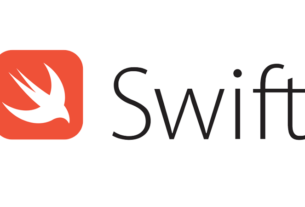Question or problem in the Swift programming language:
How can I transfer an UIImage over WatchConnecitivity from the iPhone to the Apple Watch with no user interaction on the phone, and only loads because the watch calls for it programmatically. I need this because the image processing to create the UIImage uses logic unavailable in the Watchkit API, so it must be created from the phone. I have seem some examples of Watch Connectivity using:
func startSession() {
session?.delegate = self
session?.activateSession()
}
However, I am new to watch kit and am confused on how to use this session manager, particularly to go from the watch to the device instead of the other way around like I see in apple documentation. Can someone please provide an example of how to do this on both the watch and the phone to call for a UIImage on the phone from the watch?
How to solve the problem:
Solution 1:
To transfer files between your iPhone and your Apple Watch you should use Watch Connectivity, using WCSession to handle the communication properly. You can send an UIImage as NSData using the didReceiveMessageData delegate method of the WCSessionDelegate.
The first thing you should know is convert your UIImage to NSData and viceversa. You can use for this the following code:
If PNG images
let image = UIImage(named: "nameOfYourImage.jpg") let data = UIImagePNGRepresentation(image)
If JPG images
let image = UIImage(named: "nameOfYourImage.jpg") let data = UIImageJPEGRepresentation(image, 1.0)
Then you can use the WCSession to send the message like in the following way:
ViewController.swift
class ViewController: UIViewController, WCSessionDelegate { override func viewDidLoad() { super.viewDidLoad() // Do any additional setup after loading the view, typically from a nib. if WCSession.isSupported() { WCSession.defaultSession().delegate = self WCSession.defaultSession().activateSession() } let image = UIImage(named: "index.jpg")! let data = UIImageJPEGRepresentation(image, 1.0) WCSession.defaultSession().sendMessageData(data!, replyHandler: { (data) -> Void in // handle the response from the device }) { (error) -> Void in print("error: \(error.localizedDescription)") } } override func didReceiveMemoryWarning() { super.didReceiveMemoryWarning() // Dispose of any resources that can be recreated. } }
InterfaceController.swift
import WatchKit import Foundation import WatchConnectivity class InterfaceController: WKInterfaceController, WCSessionDelegate { override func awakeWithContext(context: AnyObject?) { super.awakeWithContext(context) // Configure interface objects here. } override func willActivate() { // This method is called when watch view controller is about to be visible to user super.willActivate() if WCSession.isSupported() { WCSession.defaultSession().delegate = self WCSession.defaultSession().activateSession() } } override func didDeactivate() { // This method is called when watch view controller is no longer visible super.didDeactivate() } func session(session: WCSession, didReceiveMessageData messageData: NSData, replyHandler: (NSData) -> Void) { guard let image = UIImage(data: messageData) else { return } // throw to the main queue to upate properly dispatch_async(dispatch_get_main_queue()) { [weak self] in // update your UI here } replyHandler(messageData) } }
In the above code when you open the ViewController it sends the UIImage, the above example is only for learning purposes, you have to handle it in a more proper way regarding the complexity of your project.
I hope this help you.
Solution 2:
you have to transfer your image as NSData and then decode it on watch’s side. You can have a look at my blog post where I covered similar case.
http://eluss.github.io/AppleWatch_iPhone_data_transfer/
This is not the way of doing it with session as I was not aware of it back then, but maybe it will help you get the whole logic.
Solution 3:
In InterfaceController, if you use WCSessionDelegate, remember to extend method activationDidCompleteWith:
func session(_ session: WCSession, activationDidCompleteWith activationState: WCSessionActivationState, error: Error?) { }



